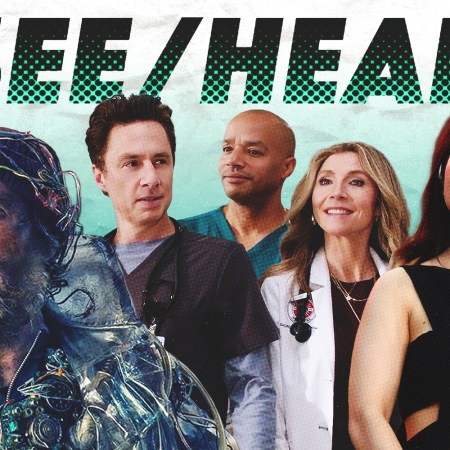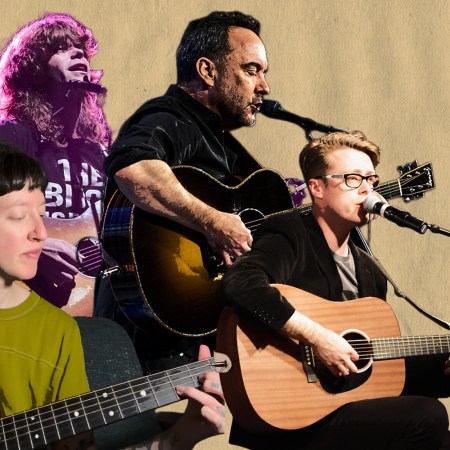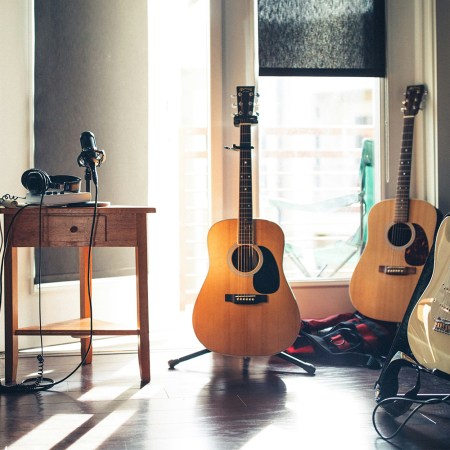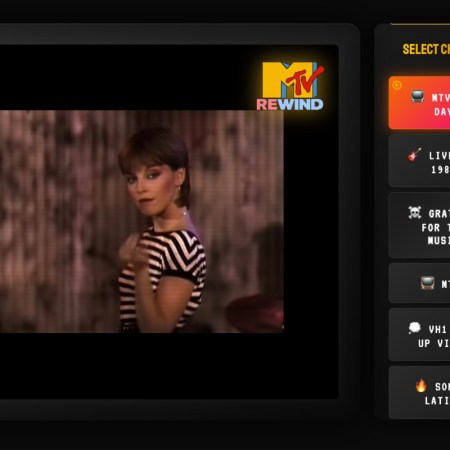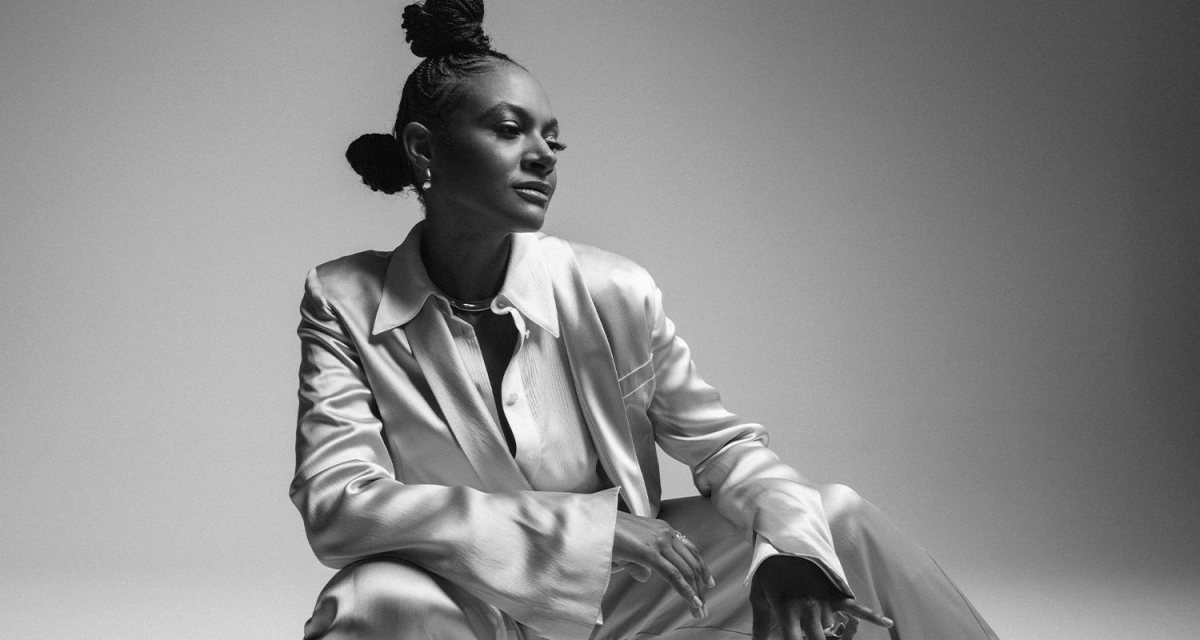
No one wants to be known primarily for the worst thing that ever happened to them. Even if they’ve made the proverbial lemons into lemonade, owned their truth, confronted their demons head-on and publicly wrestled with past traumas so beautifully that those efforts launched them into the stratosphere — like Allison Russell, whose 2021 solo debut Outside Child, which chronicled the physical and sexual abuse she endured at the hands of her adoptive father between the ages of five and 15, earned her three Grammy nominations and near-universal critical acclaim.
Outside Child was a gorgeous, moving record that sparked plenty of important conversations. But it is by no means a complete picture of Russell. You don’t need to spend much time chatting with the Canadian singer-songwriter to figure out that she’s warm, passionate, effusive, quick to laugh — certainly not some sort of tragic figure. And that’s why on her sophomore album The Returner (out now via Fantasy Records), she’s embracing joy.
“So long, farewell, adieu, adieu/To that tunnel I went through,” she sings on album opener “Springtime.” “And my reward, my recompense? Springtime of my present tense.” From those first notes, it’s clear that The Returner is a celebration of what comes after survival — healing, finding strength in community, letting the light back in.
We caught up with Russell recently to hear all about how the record came together in just six days, how her idol Joni Mitchell inspired its title and what we can expect from her forthcoming memoir. Check out the conversation below.
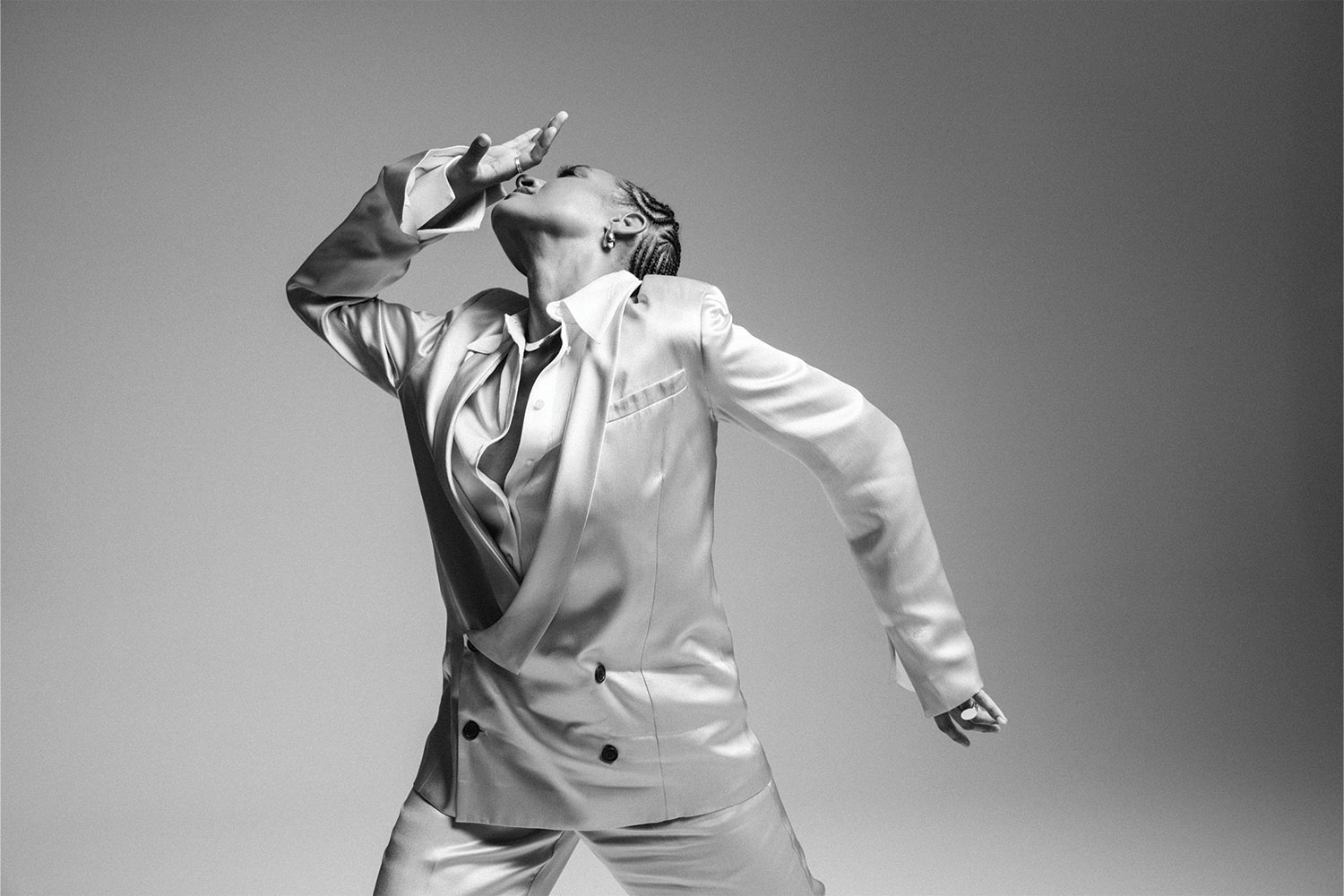
InsideHook: Tell me a little bit about the decision to focus on your present with this record after looking to your past on Outside Child.
Allison Russell: Yeah, I think I always envisioned really the launch of my solo career, these records — they’re a trilogy, but they’re standalone. Like, you don’t have to have listened to Outside Child to listen to The Returner, and the third installment you won’t have to have listened to either of the previous two. But for the nerds like me who choose to go down all the rabbit holes, it will be rewarding. So yeah, definitely Outside Child, it was not so much concerned with my past, but about the journey out of the abuse that I lived through in my past, through chosen family, through art, but you’re right in a sense that it was definitely more looking back and The Returner is very much the present. It’s the community now, it’s seizing joy from the teeth of turmoil. It is understanding that standing unapologetically in our own truths is and joy is as much resistance as going to a protest, and it’s really about celebrating the community, and in particular, celebrating the women that I am in sisterhood circle with, who have uplifted me and continue to uplift me, and hopefully I uplift them too.
I love that idea of joy as resistance, and the fact that we’re living in these scary, divisive times means that there’s all the more reason for us to be celebratory and band together. And I feel like I can really hear that philosophy throughout the record. So was that something that you were sort of making a conscious choice to incorporate, or is that just sort of how it naturally unfolded as you were writing these songs?
I think both are true. Definitely.
You mentioned the women that you surround yourself with and that sense of community, and one thing I love about this record is that it sounds so warm and loose, like you’re all sort of in the same room together.
We are, we literally are. So the way we recorded, we did that record, it’s 16 women. We did those 10 songs in six days. We recorded it in Studio D at the old A&M Studios, which is now owned by Henson Studios, so it’s like presided over by Kermit the Frog. [laughs] But the old A&M studios was where like Joni Mitchell recorded Blue and Court and Spark and Carole King recorded Tapestry. They did that big “We Are the World” collaboration with Tina Turner and everybody. So it’s got this amazing mojo in the walls at that place. And Wendy & Lisa, who were very famously part of Prince’s Revolution iteration of his band, they keep a permanent studio upstairs there year-round. And this was our first time collaborating on a recording with Wendy & Lisa, and it was so joyful and it was such a beautiful choice because Studio D is a big enough room that we could all be in the room together recording the bed tracks. And I was sort of in a booth off to one side. Lisa Coleman and Elenna Canlas, who were on the keys and the synths, were in their own little booth.
And then the drummers Megan Coleman, Wiktoria Bialic and Elizabeth Pupo-Walker had their own section as well. And then everybody else, we were literally in a circle as we were recording these songs. So Megan McCormick, Joy Clark, Ganessa James, who am I forgetting? I’m forgetting someone on this list. All the amazing string players, Larissa Maestro, SistaStrings, Monique and Chauntee Ross, who are SistaStrings. I think I named everybody. And we were literally in circle together recording these songs. So we sort of did the Neil Young Crazy Horse method where we record each song three times. If you don’t get it in three times, you move on. Usually we took the second take, and then once we had all those beds, we started layering the things we wanted to add on top.
When we were singing the harmonies, we were group-singing them all together in the room where we had recorded them just previously. Larissa Maestro and SistaStrings wrote incredible string parts for the record that I think just elevate everything. And they recorded those live right after we would get the take, and then they would layer on their strings on top, and we got to watch them doing that as a string quartet live in real time; it was just so beautiful. Wow. So I’m glad that you can hear that. I’m glad it comes across because it was this absolute joyful love and I feel like we conjured the record together, and it was sort of accidentally extra witchy because the recording time got moved up by almost three months because of vinyl delay. Like, if we wanted to have vinyl in time for the release in September, because of all the delays at the vinyl factories, the label’s like, “If you want vinyl, you have to deliver this record by the end of 2022.” So we moved up the whole recording time, almost three months, and it ended up being really serendipitous because there’s something about when you have a time constraint — we had six days and that was it to do it, and that was where everyone, sort of stars and spheres, aligned and it was so joyful.
And it happened to be the winter solstice, and we did our final day of tracking on December 22, 2022. So it just felt like this really, really beautiful, like conjuring renewal revival, going into this new phase of The Returner, which is really, yeah, you’re right. It’s much more celebratory. It’s embodied, it’s much more movement and groove. It’s celebrating just all of the joy of being alive in this time right now in these bodies celebrating that, instead of feeling ashamed of it or feeling any other way about it, you know?
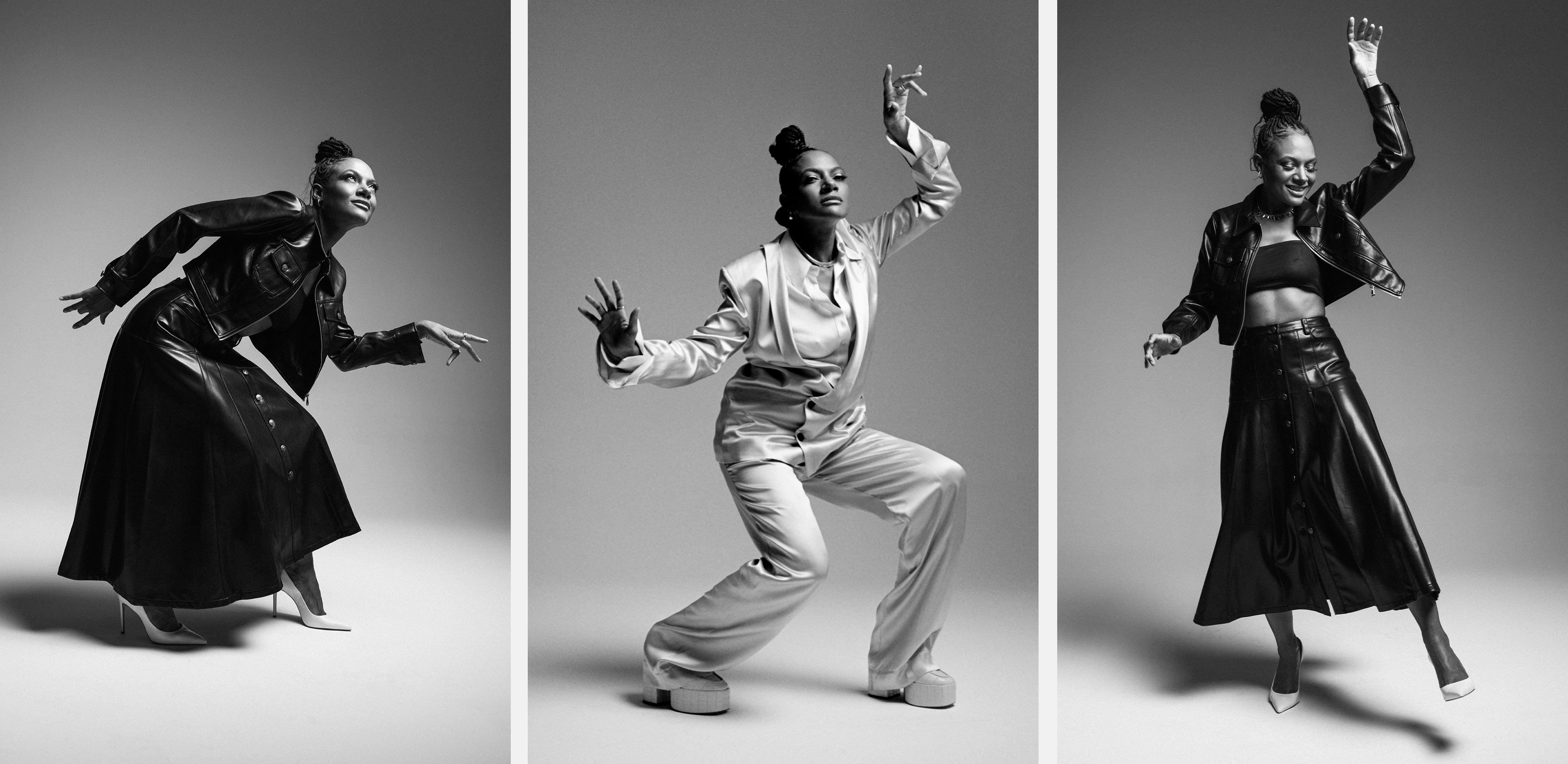
I also love how these songs, they all feel cohesive and very much like part of a unit, even though they’re not really bound by a particular genre. Were you making a conscious decision to sort of explore new sounds on this record? Or was it just kind of how it happened to unfold?
Again, I think it’s both. Yeah. And it’s just our circle. Like, we’re all extremely eclectic as players, as listeners, and it’s just naturally the way we’ve been growing together as well over the last two years since Outside Child was released. This album, I was very much writing for this circle of women and artists to inhabit, embody, animate, bring to life. And so as we were writing, I was thinking about, “Oh, this is what Larissa’s gonna do, I can imagine what Meg’s gonna do when she gets ahold of this,” you know what I mean? I was hearing and seeing them as I wrote. So inevitably, there is a kind of a much more feeling of a live, active creative conversation. Even in the parts where I was writing on my own, I’m thinking about the circle that’s going to embody the songs, you know?
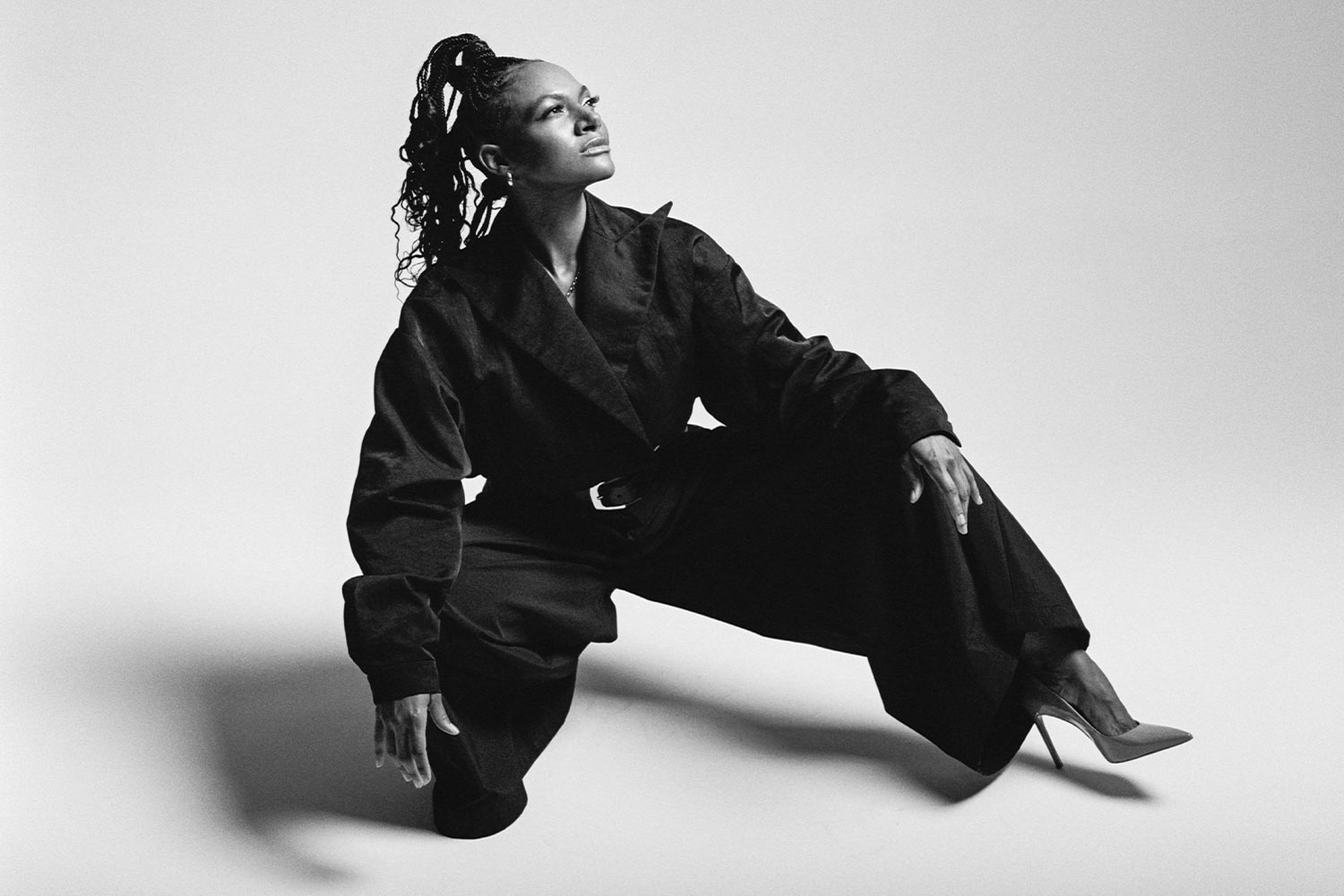
“So often we forget that each of us has an incredibly powerful sphere of influence, and it doesn’t matter if it’s one person or if it’s millions of people. The way we show up in our own truth, the way we speak it, the way we interact with those around us, it changes the world, you know?”
One of my favorite tracks on the record is “Demons.” What can you tell me about the inspiration behind that song?
No, I love it. You liked that one? I just came back from three days in Prague shooting a video for “Demons,” so I can’t wait for you to see that. I love that that’s your favorite. Well, sonically, it’s like call and response. It’s sonically representing the circle in a very, very present way. The first stanza deals with the micro of my own history, you know? Of being told as a kid what a shame it was that I was so dark and that I had such textured hair given that I had a white mother. And that’s like politics of skin color. That’s internalized self-hatred within our own communities of diaspora, of Black diaspora. Like, that was a Black woman that told me that shit, you know? It goes so deep, the way our minds get colonized by a toxic hierarchy whose job is to be extractive and abusive and to hoard resources and in order to do so, tells a bunch of us that we’re less than human and less than equal, you know? Right. And it’s a lie there. It’s always been a lie. But so that first stanza is dealing with that, the second stanza is talking about how — whether it’s the colonization in our own mind, whether it is someone external telling us lies and telling us we’re less than — that kind of fear-based, hate-based ideology and behavior doesn’t handle being faced and confronted well.
So it’s that notion that instead of running in fear, you just look; you face your demons head-on. ‘Cause they don’t like what it feels like to be really seen and exposed for the fearful lying beings they are. That’s that notion, instead of running from pain or running from things that are hard, running from abusive ideas or people, to just face them head-on and send them to the back of the bus, you know? And so of course I’m making a play on the fact that we have been devalued culturally and politically as citizens, those anti-Blackness sentiments globally, and playing with those notions, those ideas of the supposed separate but equal and like making the demons the ones that have to sit at the back of the bus.
And then the third verse is really just about, it’s sort of a call to courage. It’s a call to courage for anybody. So often we forget that each of us has an incredibly powerful sphere of influence, and it doesn’t matter if it’s one person or if it’s millions of people. The way we show up in our own truth, the way we speak it, the way we interact with those around us, it changes the world, you know? I’ve been feeling so strongly in this time of the reactionary backlash of neo-fascism raising its hideous head once again — and I’m from Montreal, but I live in Tennessee these days — and we’re dealing with legislative terrorism on a whole new level than I’ve experienced before in my real life.
And so I’m looking to the freedom writers and singers and fighters of the past for how we face it head-on, right, and we need to have that same courage and conviction and also coalition of the loving and the willing. There’s a really brilliant freedom fighter from Pakistan named Kamala Busan, and she said something so profound that I saw recently online: “There’s only two sides, equality and inequality, which side are we on?” And for me, it’s very clear that it’s equality. And so I will do everything I can to use my words, to use whatever gifts I have to promote that equality. And that’s really at the heart of “Demons” and in my own mind as well, shutting up the voices in my own mind that tell me I’m less than.
Yeah, absolutely. Well, I know you’re also working on a memoir. What can you tell me about that?
That has been one of the most intense processes of my life thus far, harder than childbirth. [laughs] ‘Cause it was only 18 hours of childbirth and then it was done. And I’m a year into wrestling with this memoir, and I’m getting close to the end of the first draft, but it has been really, really challenging. And part of the challenge is that it’s like such a code switch between what is required to do the outward facing work of performance, of sharing the songs live, of interviews, of photoshoots, things like that, and the really, really inward sort of self-evisceration, self-flagellation, peeling back the layers of being honest with oneself that are needed to write a memoir and a whole book. And it’s also for me such a learning curve because I am a writer, but this is the first time I have ever attempted a long-form piece like this, 80,000 to 100,000 words. That is a new territory for me. And I realize how spoiled I am as a songwriter because when you’re writing — even though Outside Child dealt with some difficult parts of my history, and it was in a sense a sonic memoir, I had the solace of melody at every turn. I had the solace of music and the community of music at every turn in kind of bringing those songs to the world. And so the process of writing a memoir is very, very intensely isolating, I would say.
And it’s been really challenging for me. It’s brought up a lot of stuff that I thought I was over or that I was past and made me realize I need to do a lot more therapy. [laughs] Which is good, which is good. It’s good. It’s good to just face that, and so I’m on a whole journey with it. But I am really lucky ’cause I am in the absolute best hands. I have the most wonderful literary agent, Meg Thompson, and we are so lucky that we found a home at Flatiron Books, which is an imprint of MacMillan. And my editor, Bryn Clark, she’s like a mensch beyond all mensches. She helped Tarana Burke bring Unbound into the world, she helped Ashley C. Ford bring Somebody’s Daughter, she just worked on Elliot Page’s extraordinary new memoir, Pageboy, which I highly recommend if you haven’t read it yet. He’s a beautiful writer, fellow Canadian, and it’s a gorgeous, gorgeous piece of work and I think so important right now as well, when trans identity is being so demonized and scapegoated nationally in our country and criminalized, I think it’s so important that we have Elliot’s beautiful testimony just of his own experience. And you can’t read that and tell yourself that anyone trans is less than human. You just can’t. So I’m so proud of him for putting that out into the world at this time.
But yeah, same editor, so I’m in very good hands. I’m very, very lucky to be where I am. My editor has been so patient with me through this process, and I’m trying to learn to be more patient with myself as well. And it’s been really, really great as well, like a lot of learning, a lot of self-discovery that I didn’t think I still had to do, but I did.
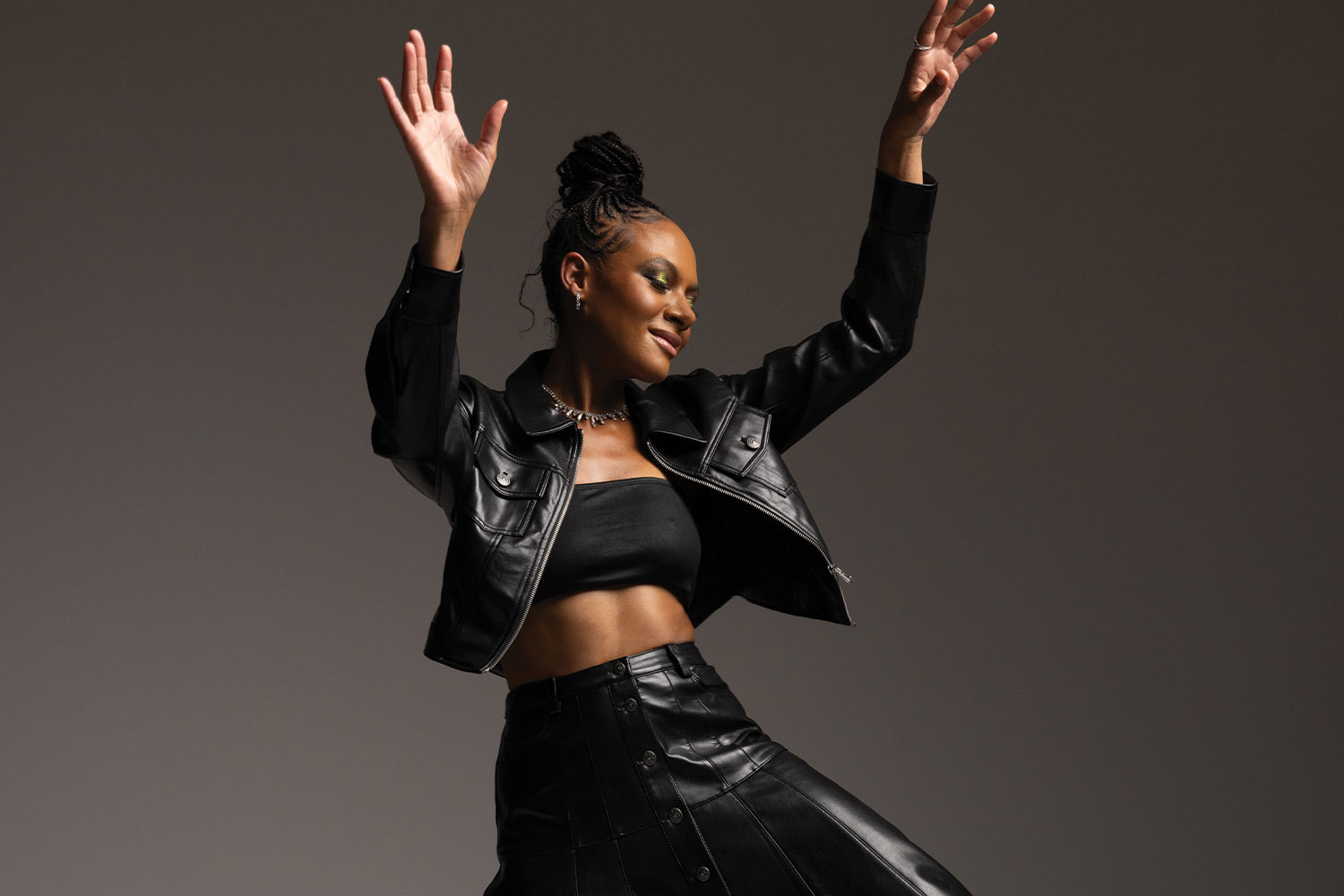
Tell me a little bit about the album sequencing and the thought process that goes into that. Did you know that you always wanted to open the record with “Springtime” and end with “Requiem”?
Do you know how much I love you for asking that? [laughs] Because I think there’s so few people that listen to albums in order now just by virtue of the fact that a lot of people are listening online, maybe they’re discovering something through a playlist, but I am the nerd that is hooked on an album journey. I feel about an album the way some people feel about a film; you wouldn’t just watch one scene, you would watch the film to find out what it’s about, and to me an album is like that. It’s a whole narrative journey even if it’s not linear and the links aren’t necessarily obvious at first listen, but I love that you asked that. So no, we debated. There was a long time where we considered opening the album with “Demons” and we really debated about it, and then the way that “Springtime” came together it just became clear that was the opener. It’s a tortured process. In this case, the album The Returner was co-written and co-produced with my partner JT Nero and our brother Drew Lindsay. Their professional name is Dim Star. And so, this is like family, this is like a three-headed beast arguing about what’s the album order. So we all did our own album sequencing and then Drew’s wife, Kate, she made the final call ’cause we were just at a loss, like “Which is it gonna be?” And she resonated with one particular album order, and we ended up going with that album order.
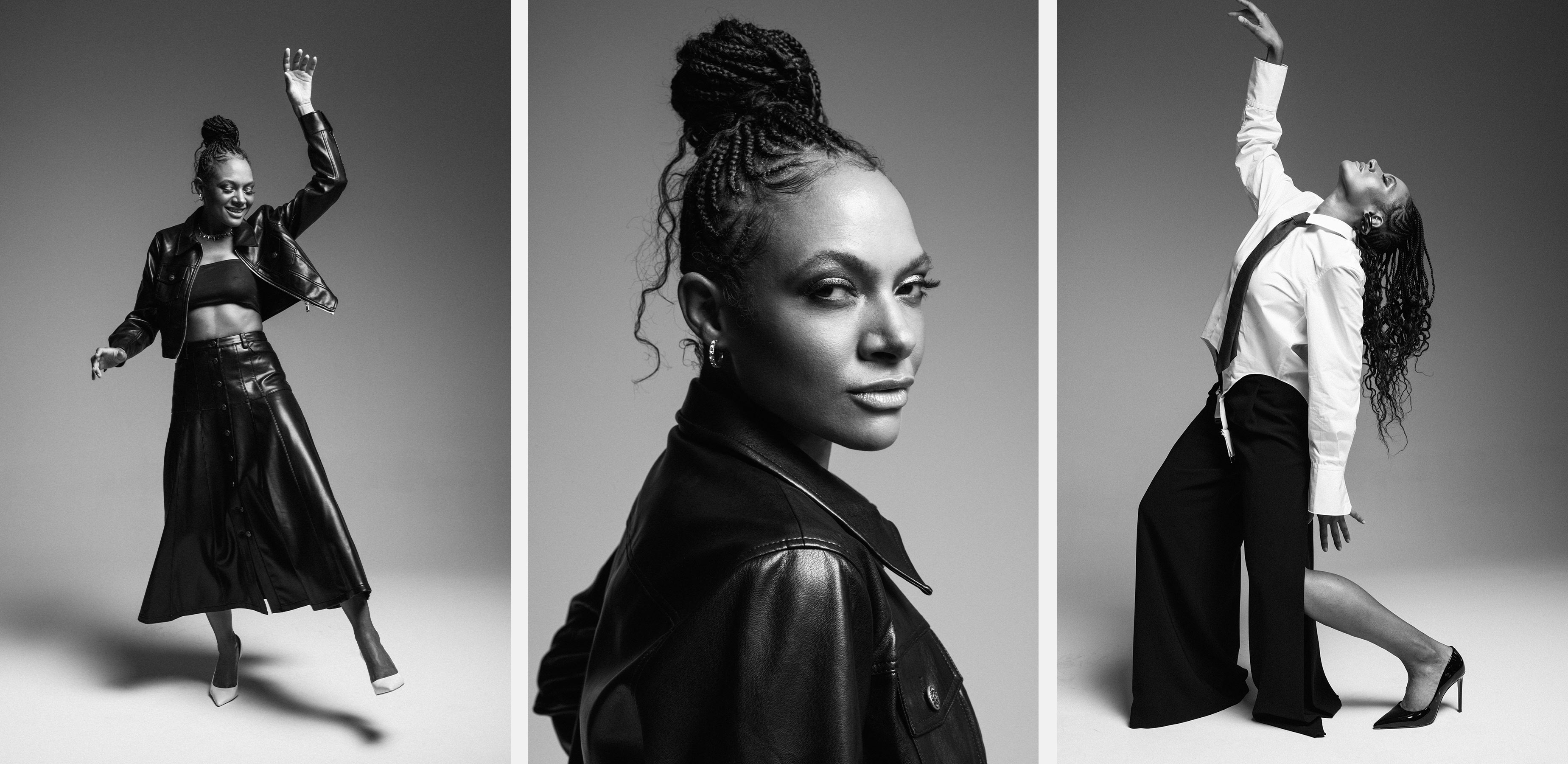
And speaking of “Requiem” ending the album, how did it come to be that Brandi Carlile and Brandy Clark and Hozier contributed backing vocals on that one?
Well, so Brandon Bell, who is the brilliant engineer and mixer of The Returner, we met him through Brandi Carlile originally because he’s worked very closely in Brandi Carlile’s camp for the last several years, has engineered all the known Grammy Award-winning, amazing albums of Brandi Carlile’s. Brandi Carlile just produced Brandy Clark’s absolutely stunning new record. And I think if Brandi Carlile doesn’t get nominated as Producer of the Year, I’m gonna, I don’t know, eat my shoe or something because she’s such a brilliant producer, and too many women are getting passed over for those nods at the awards. So anyway, Brandi Carlile had produced Brandy Clark’s new record, and Brandi Carlile is my dear, beloved, chosen sister. She’s the reason anyone’s even ever heard of Outside Child, because she’s the one that connected me with my now label and now publishing company, back before anyone was interested in having anything to do with me. She championed Outside Child early on and helped me find a family and a team that would hear and see me. So she really changed my life, and that was during lockdown. She just started championing Outside Child and me. And so she’s family to me. She and her wife and their kids, they’re family to our family. When Brandi Carlile told us, “Oh, Brandy Clark’s in town. She needs to finish up some vocals on this record. The only day that she could do it is this day. Would you guys be okay with her showing up after you finish your session?” ‘Cause we were in the midst of the Returner sessions, and we said, “Of course,” ’cause Brandon was there. And so she came in at the end of our day to finish a couple of vocals on her new record, and I just really cheekily asked her if she would sing on “Requiem” while she was there, and she graciously said yes.
And then Brandi added her harmonies remotely, and Hozier did the same. Most of the record, it’s our kind of extended family of our Rainbow Coalition circle that we’ve been growing and touring over the last couple of years since Outside Child came out. But Brandi Carlile and Brandy Clark and Hozier are three beloved friends who I see each as freedom fighters in their own way. And it felt really right to show that kind of solidarity of the community and to point back to the fact that these are artists who have, particularly Brandi Carlile and Hozier, have really uplifted me as an artist, having me open for them, amplifying our coalition and our community in their circles. Larissa Maestro now tours with Hozier, and SistaStrings now tour with Brandi Carlile. So we’re all kind of like overlapping circles and intertwined. And so it really felt right to have their voices join in on this because they’re making music mean more with everything that they do. And I’m very much aligned with them artistically and in activism.
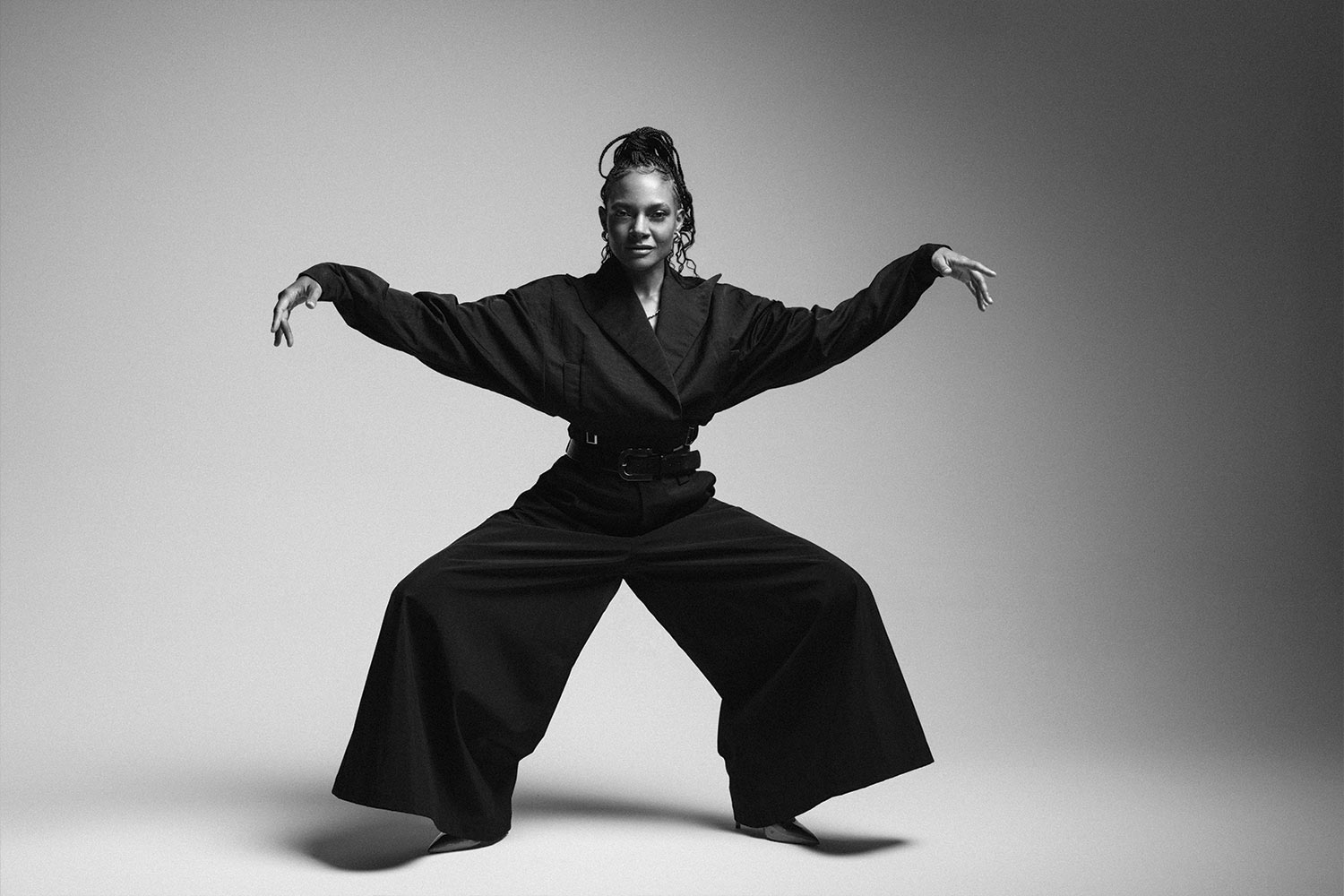
Yeah, absolutely. Well, I read an interview you did where you were talking about how Joni Mitchell sort of partially inspired the title of The Returner, and I know that you had the opportunity to play with her at The Gorge earlier this summer and also at Newport before that. What can you tell me about that experience and what it meant to you?
Talk about a full-circle moment. My earliest musical memory is of being at my grandmother’s house with my teenage mom and hiding under the piano while my mom played along to her favorite LP at the time, which was Joni Mitchell’s Ladies of the Canyon. And on that LP, there’s a deeper cut. It’s a song called “For Free.” And at the end of that song, there’s a clarinet solo. And I still remember the way every hair on my body stood on end when I first heard the clarinet on Joni Mitchell’s album and song. And that sound imprinted on me. And then to end up being invited by Brandi Carlile to play the clarinet and sing harmonies for the Joni Jam, first at Newport last summer and then at The Gorge in June of this summer just passed, was so surreal and extraordinary. And then add to that that Joni’s from Saskatoon, Saskatchewan, and so is my mom, that same teenage mom who was playing along these songs. I mean, it was just so mystical to get to be there and do that with her.
And she’s deep in my DNA as a songwriter and my awareness of the world, how I approach melody, the fact that I play clarinet. She is imprinted deeply onto all of that. So it was a massive full-circle thing and just such a transcendent and mystical experience to watch this woman and this artist who has been told not once but three times in her life, “you’ll never walk again, you’ll never talk again”? And here she is walking, talking, singing, playing at The Gorge, a nearly three-hour set whilst cracking jokes, telling hilarious stories about her iconic past, present. It meant everything to me. It meant absolutely everything to me. And Wendy & Lisa were also a part of that Gorge concert, Joni Jam, and they were telling stories about Joni and Prince. These are musical giants in my firmament. And to be acknowledged almost as a peer, to be in the same space with them and playing together is so affirming and joyful and surreal and just momentous. I don’t really even have words fully for it yet, but after the first Joni Jam at Newport, I wrote a poem about Joni and that experience. And in the poem I called Joni “Our Lady Returner.” And really that’s a returner. We’re all returners. We all come back from things that are hard. We can live through hard things. We can do hard things. Trauma doesn’t define us, how we transform it and respond to it and come back stronger and transmogrify trauma into art, that’s what defines us. And that’s our gift as a human species. And to me, Joni just embodies that grit and that grace and that fierce creative spark that is irrepressible. Even when people tell her, “No, you can’t, you’ll never be able to again,” she finds a way to do it and come back. And so that was that idea of calling her Our Lady Returner, that notion of being a returner, of really grounding in survivor’s joy and the fact that it’s not easy. It’s hard-won joy. It’s joy that you really feel all the more, because you know how fucking awful it can be.
What ultimately do you hope that people get out of this record? Like if someone were to come up to you on the street and say, “Oh my gosh, I love this album. This is what it meant for me, or this is what it made me feel.” What would be that thing that would make you say, “Yes, mission accomplished. That’s exactly what I was going for”?
I hope it makes someone feel less alone. I hope it makes someone feel beautiful and empowered to be just exactly who they are. I hope it makes them feel like they’ve got a circle and they’ve got a community that’s ready to catch them at any moment. I hope it makes them wanna dance. I hope it makes them wanna open their heart, and feel loved and give love and return. All those things.
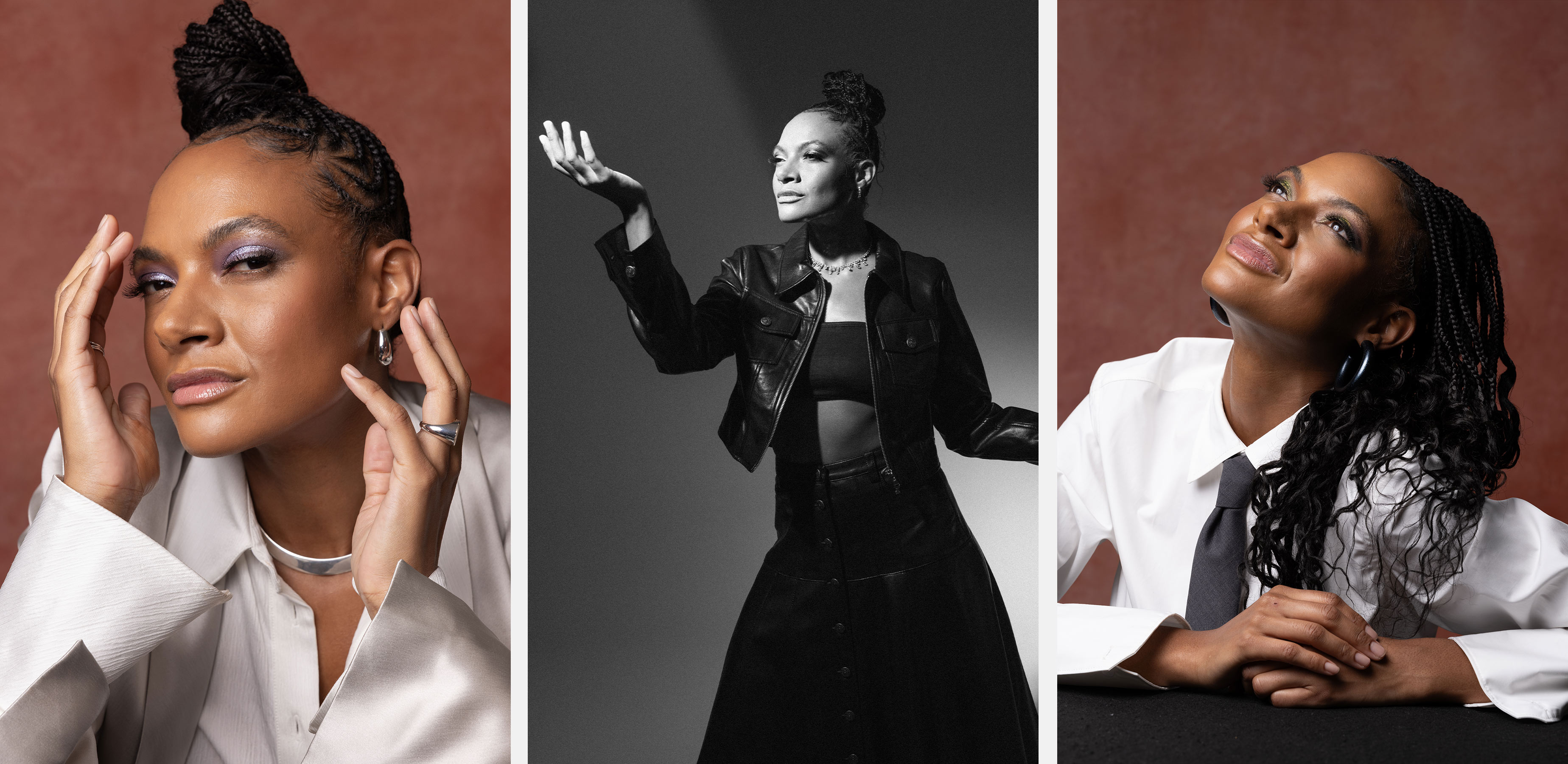
************
Photography: Ebru Yildiz
Style: Stephanie Miller
Hair: Brittney Ward
Makeup: Michela Wariebi
Braids: Adja Pretty Fix
Creative Direction: Kevin Breen
Location: Brooklyn Grain

